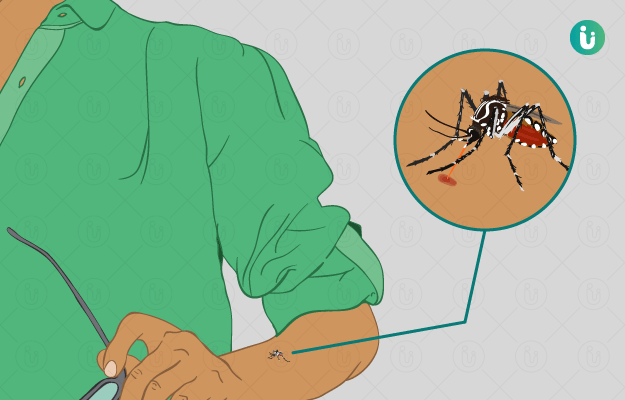What is Japanese encephalitis?
Japanese encephalitis (JE) is a disease of viral origin that infects humans and animals alike. Encephalitis, simply put, is inflammation of one or more parts of the brain. Japanese encephalitis is a common illness that can be prevented by a vaccine. It is found to be the leading cause of encephalitis in the Asian continent and the west side of the Pacific. Children in the age group of 3-6 years are commonly affected. In India, 1500-4000 cases are reported each year.
What are its main signs and symptoms?
Most patients do not exhibit any symptoms. It is found that less than 1% of patients show clinical symptoms. The major symptoms include:
- Fever (above 38°C)
- Headache
- Lack of energy
- Loose stools
- Intense muscular pain
In fewer cases, the following symptoms may be seen:
- Convulsions
- Motor function disabilities
- Unusual stiffness of the muscles
What are its main causes?
The virus that causes Japanese encephalitis belongs to the Flavivirus genus. It is usually spread through mosquito bites. The risk infection depends on:
- The place you stay or visit (places where the disease is endemic for JE)
- The time of the year when you visit such places
- The work that you do in that area (spending more time outdoors)
How is it diagnosed and treated?
A diagnosis is made based on a detailed history and physical examination. The tests that are ordered by the physician to confirm the diagnosis include:
- Blood tests: To detect antibodies against the virus
- Lumbar puncture: To check for antibodies in the cerebrospinal fluid
- Brain scans: Images of the brain showing characteristic changes
Specific medications for treating this disease are not available. Supportive measures can be taken for symptomatic relief. Vaccination may be given to prevent infection in the future. It is especially given to people who travel to areas where this condition is common. Vaccination avoided is in infants younger than 2 months. It is also not indicated for those who are allergic to any component in the vaccine.
Self-care tips:
- Use of repellents and nets can help in avoiding virus transmission by mosquito.
- Wear comfortable clothes with long sleeves to avoid mosquito bites.
- Clean your surroundings and remove pools of standing water where mosquitoes can breed.

 Doctors for Japanese Encephalitis
Doctors for Japanese Encephalitis  OTC Medicines for Japanese Encephalitis
OTC Medicines for Japanese Encephalitis


















